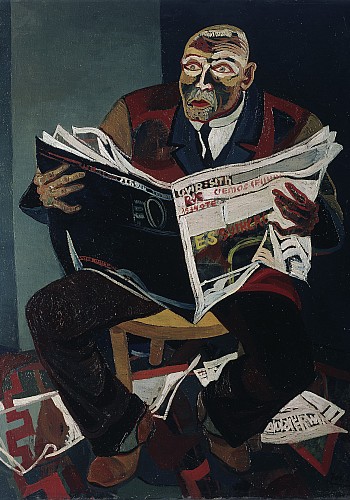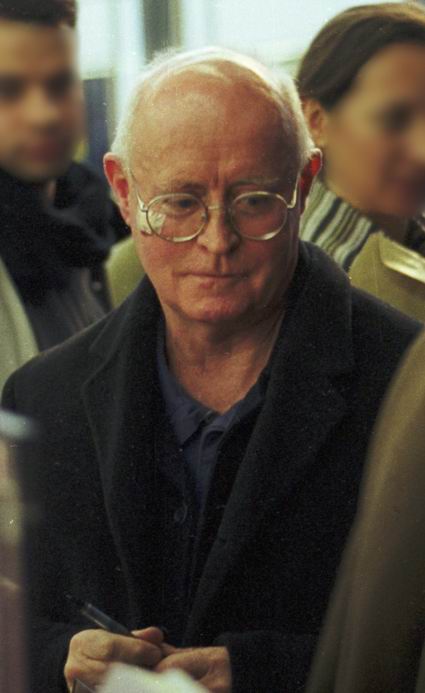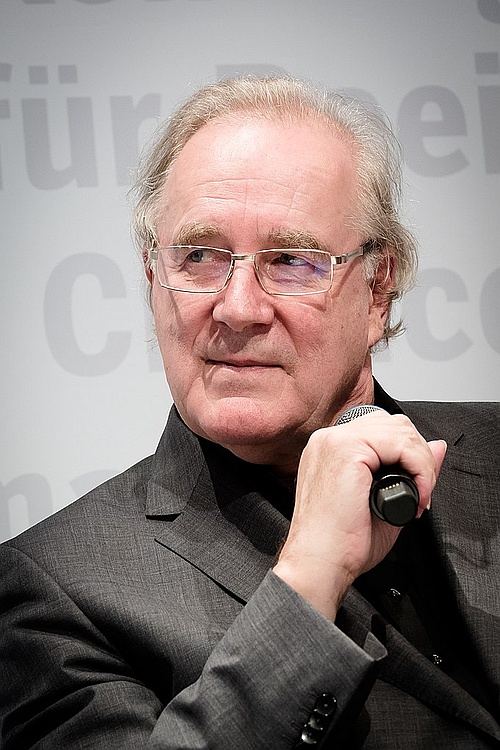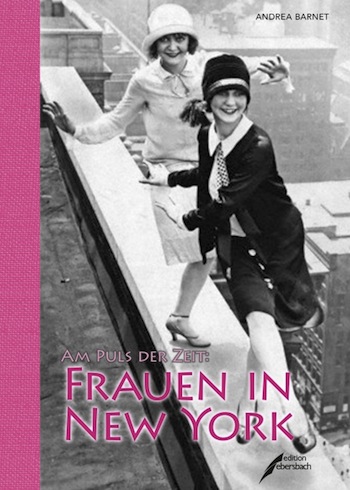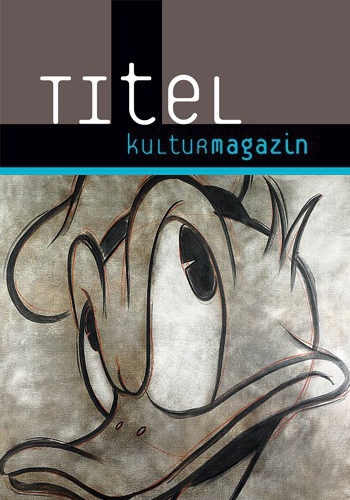Music | Bittles’ Magazine: The music column from the end of the world
Over the last decade or so the city of Berlin has risen to overtake Glasgow and Detroit to become a cornerstone of the world’s techno scene. Clubs such as Tresor, Berghain and About/Blank have helped shape the trends and rhythms of modern day electronic music. By JOHN BITTLES
Berlin-based artists including Dinky, Steffi, Marcel Dettmann, Nick Höppner and more meanwhile have taken the house/techno template, moulded it, deconstructed it, and created music so vital Coca Cola is trying to sell it by the can. The cheap(ish) rents, open-minded attitude and abandoned industrial spaces to be found has seen all manner of creative geniuses set up home in Germany’s cultural hub.
La Fraîcheur is the new rising star of the Berlin techno scene; a celebrated DJ who’s marathon sets at Wilde Renate and Mensch Meier are the stuff of fevered devotion and urban legend. Bringing a sense of commitment, enthusiasm and a passion rarely found in the world of po-faced functionalism, the multi-talented artist has also released tracks on labels such as Splinter, Leonizer Records, Modismo and more. Part of the Female:Pressure network, the French native mixes politics, pummelling beats and liberal dollops of funk to create music which demands you play it again and again.
This month sees the release of La Fraîcheur’s highly anticipated debut LP. A trip for both body and soul, Self-Fulfilling Prophecy is out now on respected French label Infiné and is an ode to the joys of losing yourself on a dance floor. Renegade opens proceedings with some eerie atmospherics, its slow, unhurried beats sitting nicely beside horror score synths and a soft-focus groove. Next up, Tirana appeals to the floor with its deep, bassy pull, before The Movement ups the pace, its tough techno crunch and spoken word vocals the perfect marriage of politics and dance. Other highlights include the poignant ambiance of Morgan La Nuit, the Eye Q style techno thump of Eaux Troubles and the shiver inducing house of Limb By Limb. It’s all good though, with a high standard ably maintained over the album’s nine tracks.
With Self-Fulfilling Prophecy having wormed its way into my heart I couldn’t resist the urge to find out more. In the following interview La Fraîcheur discusses the new album, spending time in the Underground Resistance studios, politics, working with the people at Infiné, new home Berlin, being a happy artist and lots more.
So, prepare your mind and feet, and let us begin…

For anyone new to your music, can you tell us a little about who you are and what you do?
I’m a 35 years old female queer French Berlin-based electronic musician and DJ. In the past 6 years I’ve lived here I’ve nurtured special bonds with the Wilde Renate and Mensch Meier families, which are clubs that carry out scenes and values I relate to. I’ve released about a dozen EPs in the past couple of years ranging from techno to deep house to electro. I’m a travel addict and hyperactive so I spend most of my time either on tour or making more music in my home studio.
Your debut album Self-Fulfilling Prophecy came out on the 22nd of June. What was the idea behind the LP?
After releasing a lot of collaborative EPs, I felt it was time to get a new solo release out and make a statement of it. Unfortunately as a female producer, you still face a lot of sexism and discrimination. You have no idea how many times I’ve heard people suggest all the music I created with my fellow male producer friends could not possibly be my work but theirs. I always make a lot of music and a full length was the natural next step, also for me it was a chance to explore what is “my sound”, or find out if I have one actually. I’ve always loved, played and made a lot of different genres of music so I was curious to see if and how I could pull out a coherent and meaningful LP. The main idea behind the LP is to figure out how music can heal us and spark progress, as a society or on a personal level. It was produced in a time of intense political frustration, not only at the state of the world but at our seemingly endless apathy facing it, and in a personal time of grief. The album is based on a push & pull dynamic. Learning when to let go and when to push forward.
What type of listener do you think will especially appreciate Self-Fulfilling Prophecy?
Ha! No idea. To be honest, I don’t really think about that. I mean, I see my DJ work as a very social work. It’s built towards other people, caring for them with music, creating the narrative bubble and space for them to liberate themselves. But my production work is highly personal and more selfish to be honest. Even if I think of the music I make in relation to other people, I don’t really care if people like it or not. It made me happy making it, and that’s what matters most to me. I’d rather be a happy artist than a tortured one. And, we are 7 billions on this planet, some people somewhere are bound to relate to the music I make.
If you had to pick one song to sell the album, which would it be and why?
 Tuff question, because the notion of “selling” the album depends totally on who you are aiming to sell it to. Selling is all about figuring out what other people want or need, and which way to make them believe what you have to offer will fill that gap. So unless you tell me who you want me to sell it to, I can’t really say. There’s a little bit for everyone in that album, from 90bpm trips to rave techno, melancholic electronica to political statements. I guess that’s what will make people either love or hate it.
Tuff question, because the notion of “selling” the album depends totally on who you are aiming to sell it to. Selling is all about figuring out what other people want or need, and which way to make them believe what you have to offer will fill that gap. So unless you tell me who you want me to sell it to, I can’t really say. There’s a little bit for everyone in that album, from 90bpm trips to rave techno, melancholic electronica to political statements. I guess that’s what will make people either love or hate it.
Opening track Renegade is a wonderfully atmospheric mood setter. Was this always going to be the first track?
Actually Renegade was one of the first tracks created, but it wasn’t clear then that it would end up on the album until Mike Banks, with whom I was staying in Detroit during my artist residency, took me on a long night drive through the city and then it made sense. As soon as I knew it would be in the album then it was obvious to me it would be the opener. For narrative reasons, as a mood setter to slowly get into the album, which is a format less and less people (me included) listen to. But also because it was important to me to catch people by surprise. I’m known for my high energy, intense emotional techno sets, and I produced the album at the Underground Resistance studios, so I knew people would expect a techno album. Putting Renegade first was a way of saying “oh, you think you know what’s in there? Well wait for it babe”.
One of my favourite tracks on the album is the deep techno groove of The Movement. Where did the spoken word vocal come from, and what do you think it adds to the song?
To me, the message doesn’t “add” to the track, the message IS the track. It is the voice of afro-American female political activist and researcher Angela Y. Davis during an interview she gave to Amy Goodman on Democracy Now! It is very important to me to participate, at my own level and in my own way, in the political awakening of a sleepy generation too busy being distracted by a constant flux of info and images to actually take a stand or fight for our rights, that conservatives around the world are limiting without anyone doing anything about it. Amnesty International reports on France, Turkey, USA, Chile, pretty much anywhere, are scary. We’re letting governments take our basic rights away, supposedly to protect us from the threat of “terrorism”, and we’re too distracted by Instagram to do anything about it. And media around the world always focus on national topics, catering for their own crowds, completely missing the point that the same thing is happening everywhere and people suffering from discrimination – people of colour, women, queer, disabled people – are actually being bullied by the same system no matter the country they live in, namely the patriarchal white capitalist system the world has inherited from colonial times.
To make people realise that we are all suffering from the same evil and that the only way forward is together, was very important to me. Intersectionality is at the centre of our possible progress as a society.
Another fave is the epic sounding Eaux Troubles, a song which I can’t wait to hear in a club. Can you talk us through the creative process of this track?
Ha! Thank you! It is actually one of my favourite too tho, it’s not everyone’s opinion. I had to fight and stand my ground to keep it in the album and exactly the way it is. Eaux Troubles (“cloudy muddy waters” in French) is meant as a slow emotional burner for the hazy ketaminated dancers of the dark Berlin clubs. I am always amazed how those creatures I often get to observe, manage to keep dancing while barely keeping their balance or being able to hold up their heads. I wanted to create a track that carries within enough drive through the bassline and double kick to keep them going, but that also had a hard-to-grasp freeform evolution without a recognizable melody or hook, something that could mirror the floating of their world and unique sense of time that comes with it. Eaux Troubles is for my Berlin crowd, for the people I dance with and the people I play for.
Self-Fulfilling Prophecy is coming out on the highly respected Infiné imprint. How did you first hook up with the label?
I contacted them! Straight up. I believe in knocking down doors and bulldozering your way to where you want to be. I knew my album would run a wide gamut of styles and I needed to find a home for it with people who understand the importance of variety in electronic music and don’t limit me. I didn’t want to see my album split in pieces, labels saying “we’ll take the techno tracks and release an EP instead”. I needed to release with a label that has in its essence the understanding that electronic music is multi-faceted and an album is both a journey and an artist’s ID. In an era where it seems the industry gets more and more specialized (from DJs to producers to labels to parties), with people finding a sound and digging it deeper and deeper ad nauseam, it’s precious to find a place where I felt free to be a diverse mess.
You have also made a name for yourself with some scintillating DJ sets. What are the key components to working a dance floor?
It’s gonna be hard to answer that question without sounding like the biggest hippie. You need to absolutely be in mad love with the music you play, that’s the only way to be able, not only to play good tracks, but to carry people along with your enthusiasm. I truly believe the energy I spend DJing is a big part of why people react so well to my sets. I’m very physically engaged during my sets, I can’t possibly hide the fact that I am crazy about that music and I think it helps people build trust towards me as a DJ, even if I play things they are not used to.
The other key component is being able to read a crowd. Figuring out what they need and delivering it to them with a twist. If you don’t focus on the crowd, you’ll lose them from the lag, if you give them exactly what they want, you’ll lose them from boredom, nobody comes to a club to listen to their personal Spotify playlist, you can’t lose yourself in music if you know what’s coming. You need to get them out of their comfort zone while keeping them in a familiar space. One foot in, one foot out.
The other key aspect to me is the understanding that clubs are a safe space for communities, a space to feel free in a world where the rest of the time, you are disrespected, discriminated against and treated like a second class citizen with less basic human rights. All DJs, whether or not they are part of those communities, should understand that important element. A lot of people in clubs are not just there to get shitfaced and have a good time or get lucky, they are there cos it’s their only breathing space, you have to treat that moment with the respect it deserves. People need relief from the shit and celebrate their too often mistreated identities. As a DJ you are here to provide that, it’s a huge responsibility. Take it seriously.
What five tracks are currently working for you in the clubs?
- Elias Deepman & Lucas Vazz – Sin Nombre
- Elisa Bee – Awaken
- Modig – Tricep
- Russell – Randex
- Melanie Massa – Angry Bass
If a DJ plays a fantastic set yet no-one is dancing, have they really played a great set?
Ha. No. Once again, a DJ is a social worker, you’re here for people, not your own personal pleasure only. Of course you have to love what you are creating but DJing is not about you, it’s about the moment, it’s about community bonding, it’s about creating a moment of solace, it’s bigger than your own person. This being said, it’s also the responsibility of the club/party/festival booker to know what they are doing and booking artists knowing what they do, how they do it and who is gonna relate to it. A great DJ with a great set can also be booked to play a slot that makes zero sense with what they do and there’s not much you can do about that then. You’re a social worker, not a jukebox, if what you do doesn’t make sense in that time/stage/crowd, you can’t just change who you are and the music you carry (in your heart and in your record bag) and come up with a completely different identity to please the people in front of you.
You have been living in Berlin for a while now. In what ways does the city affect your philosophy and the music which you make?
Oh, where to start. Berlin has had such a massive impact on me on so many levels, personal, political, musical, career wise, lifestyle wise. It’s hard to pinpoint elements that are interconnected and feed themselves and I don’t want to reduce my experience or Berlin to limiting statements which they can only be when you’re not having an in-depth conversation about it.
I guess the root of most of those changes was the discovery of dance. Fairly late I have to admit for a DJ, but for a long time I never liked going to clubs or dancing. Probably because most of them around the world are an expensive soul-less space for drunk men to prey on women and I never felt comfortable or like I belonged in those spaces. Discovering spaces here where I could let myself be comfortable dancing in my bra and men would respect my space and give me room and not bother me, well that changed everything! Finally I could go out, finally I could dance, which both completely changed the way I DJ and relate to electronic music. That feeling and power of introspection that dance offers, that liberating physical experience, the trance, forever changed, maybe not the music I make, which is not all club-oriented, but definitely the music I play or how I play it. I have definitely better or more radically embraced my identity living in Berlin since I met the spaces where my pre-existing values and philosophies could soar and develop within a larger movement.
What five places in Berlin would you recommend for visitors to check out?
Haha, depends if I want to see those people in my spaces or not. I mean, how many times can you recommend a place before it’s ruined by the excess success? I usually have two lists for people asking me for tips around town. One where I send them to nice places I know they’ll love but where I don’t necessarily go, so I can keep my spaces free of loud overbearing newbies, and one where I just take people with me. It’s not being a snob, it’s about protecting, once again, safe spaces for people (people of colour, women, queer, trans, disabled) who don’t have the entire world as their comfort zone, and though I always champion inclusion, you have to also respect the necessity for spaces to remain primarily for the people that NEED that space originally and let in people who will understand how to behave in those spaces.
This being said:
- The Soviet Memorial is a pretty awesome space and structure and its history says a lot about Berlin in between the lines.
- Wilde Renate, About/Blank, Mensch Meier are my go to clubs. And Berghain, but it doesn’t need any more publicity.
- A bike trip to the lake. One of the reasons my move from Montreal to Berlin was smooth is that precious possibility to find yourself in nature right outside of town.
- A Falafel Halloumi wrap at Babel on Kastanienallee.
- A contemporary art day along the Potsdamer Straße galleries.

Can ‚dance music‘ influence how we live our lives?
Absolutely. Dance music was political in its infancy, from the people who created it to the places it was played in, and can still be today even if it has become a commodity for most people. Dance music has a specific purpose and dancing is a unique way of connecting with yourself, expressing yourself, getting things out of your system, meditating or dealing with introspective thoughts, creating bonds with other humans, it has a wonderful liberating effect on so many people, getting you high on the natural chemicals, endorphins, dopamine, adrenaline, you name it, when you’re dancing, it’s there.
Self-Fulfilling Prophecy is available now from La Fraîcheur’s bandcamp page, or any download or record store worth its salt. Make your mother proud and treat yourself to a copy now.
| JOHN BITTLES
| PHOTOS: CHRIS PHILLIPS



